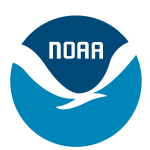- Industry: Government
- Number of terms: 30456
- Number of blossaries: 0
- Company Profile:
NOAA Coral Reef Conservation Program, National Oceanic and Atmospheric Administration, U.S. Department of Commerce
A class of the segmented worm phylum Anellida. There are approximately 8,000 species of polychaetes which include errant (free-moving) forms and sedentary ones that live in stabilized burrows, galleries or tubes of various degrees of complexity. Some burrow into coral. Many species are common inhabitants of coral reefs, such as the Christmas tree worms, feather duster worms, fanworms, fireworms, scaleworms, threadworms, and others.
Industry:Natural environment
A class of vertebrates that consists of frogs, toads, newts, salamanders, and caecilians. These organisms live at the land/water interface and spend most of their life cycle in water. With exception of some tree frogs, all must reproduce in water or otherwise moist conditions. Amphibians are not typically marine.
Industry:Natural environment
A class of warm blooded animals (mammals) whose common characteristics include the presence of hair, milk-secreting glands, a muscular diaphragm between the abdominal and pleural and mediastinal cavities, a lower jaw composed of a single pair of bones, a middle ear containing three bones, and the presence of only a left systemic arch.
Industry:Natural environment
A class within the phylum Cnidaria. The Hydrozoa contains five orders that include: small medusae with no polyp generation; colonial forms with alternating polyp and medusa stages and a chitinous exoskeleton; solitary polyps that lack a medusoid stage; colonial forms with massive aragonite skeletons (e.g., fire coral); and complex colonial forms, with individual polyps specialized for feeding, swimming, prey capture, and reproduction. Some, but not all, float by means of a large pneumatophore, or gas bag.
Industry:Natural environment
A collection of cdna clones that were generated in vitro from the mrna sequences isolated from an organism, or a specific tissue or cell type, or population; a library of cdna sequences.
Industry:Natural environment
A collection of cloned DNA fragments that collectively represent the genome of an organism.
Industry:Natural environment
A commercial array-oriented language with numerical analysis and display features, first released in 1977. It supports interactive reduction, analysis, and visualisation of scientific data.
Industry:Natural environment
A community-based monitoring program developed by Queensland's Department of Primary Industries and Fisheries (QDPI&F) in conjunction with community groups. Seagrass-Watch collects data about the condition and trend of near-shore seagrasses throughout Queensland and provides an early warning of major changes in seagrass abundance, distribution and species composition .
Industry:Natural environment
A cooperative effort among Hawaii, American Samoa, Guam, the Commonwealth of the Northern Mariana Islands, Puerto Rico, and the U.S. Virgin Islands to improve the management of coral reefs in island areas.
Industry:Natural environment
A data entry and analysis program developed by the southern Indian Ocean Global Coral Reef Monitoring Program (GCRMN) node. It is based on ARMDES (AIMS Reef Monitoring Data Entry System) but has been extensively modified from COREMO to suit the needs of the GCRMN.
Industry:Natural environment
